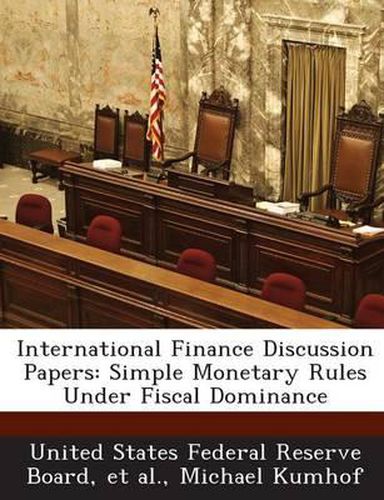Readings Newsletter
Become a Readings Member to make your shopping experience even easier.
Sign in or sign up for free!
You’re not far away from qualifying for FREE standard shipping within Australia
You’ve qualified for FREE standard shipping within Australia
The cart is loading…






This paper asks whether an aggressive monetary policy response to inflation is feasible in countries that suffer from fiscal dominance, as long as monetary policy also responds to fiscal variables. We find that if nominal interest rates are allowed to respond to government debt, even aggressive rules that satisfy the Taylor principle can produce unique equilibria. But following such rules results in extremely volatile inflation. This leads to very frequent violations of the zero lower bound on nominal interest rates that make such rules infeasible. Even within the set of feasible rules the optimal response to inflation is highly negative, and more aggressive inflation fighting is inferior from a welfare point of view. The welfare gain from responding to fiscal variables is minimal compared to the gain from eliminating fiscal dominance.
$9.00 standard shipping within Australia
FREE standard shipping within Australia for orders over $100.00
Express & International shipping calculated at checkout
This paper asks whether an aggressive monetary policy response to inflation is feasible in countries that suffer from fiscal dominance, as long as monetary policy also responds to fiscal variables. We find that if nominal interest rates are allowed to respond to government debt, even aggressive rules that satisfy the Taylor principle can produce unique equilibria. But following such rules results in extremely volatile inflation. This leads to very frequent violations of the zero lower bound on nominal interest rates that make such rules infeasible. Even within the set of feasible rules the optimal response to inflation is highly negative, and more aggressive inflation fighting is inferior from a welfare point of view. The welfare gain from responding to fiscal variables is minimal compared to the gain from eliminating fiscal dominance.